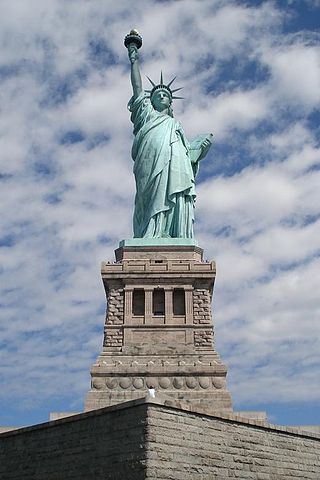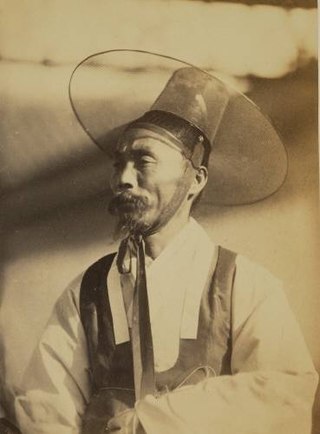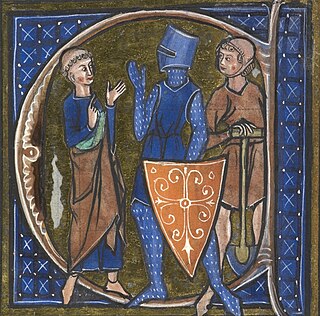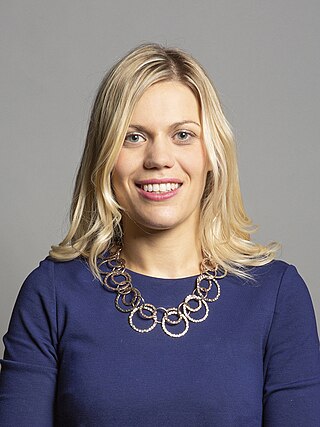Related Research Articles
Citizenship is a membership and allegiance to a sovereign state.
Meritocracy is the notion of a political system in which economic goods or political power are vested in individual people based on ability and talent, rather than wealth, social class, or race. Advancement in such a system is based on performance, as measured through examination or demonstrated achievement. Although the concept of meritocracy has existed for centuries, the first known use of the term was by sociologist Alan Fox in the journal Socialist Commentary in 1956. It was then popularized by sociologist Michael Dunlop Young, who used the term in his dystopian political and satirical book The Rise of the Meritocracy in 1958. While the word was coined and popularized as a pejorative, its usage has meliorated. Today the term is often utilised to refer to social systems in which personal advancement and success primarily reflect an individual's capabilities and merits, frequently seen as equality of opportunity.
Heteronormativity is the concept that heterosexuality is the preferred or normal sexual orientation. It assumes the gender binary and that sexual and marital relations are most fitting between people of opposite sex.
Productivism or growthism is the belief that measurable productivity and growth are the purpose of human organization, and that "more production is necessarily good". Critiques of productivism center primarily on the limits to growth posed by a finite planet and extend into discussions of human procreation, the work ethic, and even alternative energy production.
The pater familias, also written as paterfamilias, was the head of a Roman family. The pater familias was the oldest living male in a household, and could legally exercise autocratic authority over his extended family. The term is Latin for "father of the family" or the "owner of the family estate". The form is archaic in Latin, preserving the old genitive ending in -ās, whereas in classical Latin the normal first declension genitive singular ending was -ae. The pater familias always had to be a Roman citizen.

The American Dream is the national ethos of the United States, that every person has the freedom and opportunity to succeed and attain a better life. The phrase was popularized by James Truslow Adams during the Great Depression in 1931, and has had different meanings over time. Originally, the emphasis was on democracy, liberty and equality, but more recently has been on achieving material wealth and upward mobility.

The yangban were part of the traditional ruling class or gentry of dynastic Korea during the Joseon Dynasty. The yangban were mainly composed of highly educated civil servants and military officers—landed or unlanded aristocrats who individually exemplified the Korean Confucian form of a "scholarly official". They were largely government administrators and bureaucrats who oversaw medieval and early modern Korea's traditional agrarian bureaucracy until the end of the dynasty in 1897. In a broader sense, an office holder's family and descendants, as well as country families who claimed such descent, were socially accepted as yangban.

In the social sciences, social structure is the aggregate of patterned social arrangements in society that are both emergent from and determinant of the actions of individuals. Likewise, society is believed to be grouped into structurally related groups or sets of roles, with different functions, meanings, or purposes. Examples of social structure include family, religion, law, economy, and class. It contrasts with "social system", which refers to the parent structure in which these various structures are embedded. Thus, social structures significantly influence larger systems, such as economic systems, legal systems, political systems, cultural systems, etc. Social structure can also be said to be the framework upon which a society is established. It determines the norms and patterns of relations between the various institutions of the society.
Nouveau riche, new rich or new money is a social class of the rich whose wealth has been acquired within their own generation, rather than by familial inheritance. These people previously had belonged to a lower social class and economic stratum (rank) within that class and the term implies that the new money, which constitutes their wealth, allowed upward social mobility and provided the means for conspicuous consumption, the buying of goods and services that signal membership in an upper class. As a pejorative term, nouveau riche affects distinctions of type, the given stratum within a social class; hence, among the rich people of a social class, nouveau riche describes the vulgarity and ostentation of the newly rich person who lacks the worldly experience and the system of values of old money, of inherited wealth, such as the patriciate, the nobility, and the gentry.

Social stratification refers to a society's categorization of its people into groups based on socioeconomic factors like wealth, income, race, education, ethnicity, gender, occupation, social status, or derived power. It is a hierarchy within groups that ascribe them to different levels of privileges. As such, stratification is the relative social position of persons within a social group, category, geographic region, or social unit.

Social movement theory is an interdisciplinary study within the social sciences that generally seeks to explain why social mobilization occurs, the forms under which it manifests, as well as potential social, cultural, political, and economic consequences, such as the creation and functioning of social movements.

Gentry are "well-born, genteel and well-bred people" of high social class, especially in the past. Gentry, in its widest connotation, refers to people of good social position connected to landed estates, upper levels of the clergy, or "gentle" families of long descent who in some cases never obtained the official right to bear a coat of arms. The gentry largely consisted of landowners who could live entirely from rental income or at least had a country estate; some were gentleman farmers. In the United Kingdom, the term gentry refers to the landed gentry: the majority of the land-owning social class who typically had a coat of arms but did not have a peerage. The adjective "patrician" describes in comparison other analogous traditional social elite strata based in cities, such as the free cities of Italy and the free imperial cities of Germany, Switzerland, and the Hanseatic League.

Edo society refers to the society of Japan under the rule of the Tokugawa Shogunate during the Edo period from 1603 to 1868.
Social privilege is an advantage or entitlement that benefits individuals belonging to certain groups, often to the detriment of others. Privileged groups can be advantaged based on social class, wealth, education, caste, age, height, skin color, physical fitness, nationality, geographic location, cultural differences, ethnic or racial category, gender, gender identity, neurodiversity, physical disability, sexual orientation, religion, and other differentiating factors. Individuals can be privileged in one area, such as education, and not privileged in another area, such as health. The amount of privilege any individual has may change over time, such as when a person becomes disabled, or when a child becomes a young adult.

Cultural racism, sometimes called neo-racism, new racism, postmodern racism, or differentialist racism, is a concept that has been applied to prejudices and discrimination based on cultural differences between ethnic or racial groups. This includes the idea that some cultures are superior to others or in more extreme cases that various cultures are fundamentally incompatible and should not co-exist in the same society or state. In this it differs from biological or scientific racism, which refers to prejudices and discrimination rooted in perceived biological differences between ethnic or racial groups.
Myth of meritocracy is a phrase arguing that meritocracy, or achieving upward social mobility through one's own merits regardless of one's social position, is not widely attainable in capitalist societies because of inherent contradictions. Meritocracy is argued to be a myth because, despite being promoted as an open and accessible method of achieving upward class mobility under neoliberal or free market capitalism, wealth disparity and limited class mobility remain widespread, regardless of individual work ethic. Some scholars argue that the wealth disparity has even increased because the "myth" of meritocracy has been so effectively promoted and defended by the political and private elite through the media, education, corporate culture, and elsewhere. Economist Robert Reich argues that many Americans still believe in meritocracy despite "the nation drifting ever-farther away from it."
Naked marriage in China, sometimes called "bare marriage", is a form of marriage that is undertaken without the couple having first accumulated a solid financial foundation. Typically it does not include a wedding, a ring, a house, a car or a honeymoon. The practice contrasts with the traditional Chinese custom of parents helping to provide the assets for their children's marriages. Naked marriage has become increasingly prevalent in China and is popular among people born in the country after the 1980s. It is generally recognized as a frugal way for loving partners to marry under the enormous economic pressure China's younger generation is facing in the 21st century.

Miriam Joy Cates is a British politician who has served as the Member of Parliament (MP) for Penistone and Stocksbridge since the 2019 general election. She is a member of the Conservative Party.

Elite overproduction is a concept developed by Peter Turchin, which describes the condition of a society which is producing too many potential elite members relative to its ability to absorb them into the power structure. This, he hypothesizes, is a cause for social instability, as those left out of power feel aggrieved by their relatively low socioeconomic status.
Rob Henderson is an American writer and political commentator known for popularizing the idea of luxury beliefs. His memoir, Troubled: A Memoir of Foster Care, Family, and Social Class, was published in 2024 by Simon & Schuster's Gallery Books.
References
- ↑ Henderson, Rob (February 20, 2024). Troubled: A Memoir of Foster Care, Family, and Social Class. Gallery Books. Preface. ISBN 978-1982168537.
- 1 2 3 Henderson, Rob (17 August 2019). "Luxury Beliefs Are the Latest Status Symbol for Rich Americans". NY Post . Archived from the original on 18 March 2024.
- 1 2 Friedersdorf, Conor (2 March 2024). "What 'Luxury Beliefs' Reveal About the Ruling Class". The Atlantic . Archived from the original on 3 March 2024. Retrieved 5 March 2024.
- 1 2 Lemov, Doug; Lewis, Hilary; Williams, Darryl; Frazier, Denarius (2023). Reconnect: Building School Culture for Meaning, Purpose, and Belonging. New York: Wiley. p. 125. ISBN 9781119739999 – via Google Books.
- 1 2 Goodwin, Matthew (2023). Values, Voice and Virtue: The New British Politics (ebook). Penguin Random House. p. 118. ISBN 9781802062274 – via Google Books.
- ↑ Lewyn, Michael (October 11, 2023). "'Luxury Beliefs' and Urban Planning". Planetizen. Retrieved December 26, 2023.
- ↑ Pondiscio, Robert (December 9, 2021). "Education's enduring love affair with "luxury beliefs"". Thomas B. Fordham Institute. Retrieved December 26, 2023.
- ↑ Abelson, R. P. (1986). "Beliefs are like possessions". Journal for the Theory of Social Behaviour. 16 (3): 223–250. doi:10.1111/j.1468-5914.1986.tb00078.x.
- ↑ Patrick Parkinson (2022). "Marriage and Luxury Beliefs at the United Nations". Vol. 66, no. 1. Quadrant Magazine. p. 34-39.
- ↑ Cavanagh, Shannon E.; Fomby, Paula (30 July 2019). "Family Instability in the Lives of American Children". Annual Review of Sociology . 45 (1): 493–513. doi:10.1146/annurev-soc-073018-022633. PMC 7388657 . PMID 32728311.
- 1 2 Grose, Jessica (31 Jan 2024). "Good Marriages Are Good. Bad Marriages Are, Well, Bad". The New York Times . Archived from the original on 8 February 2024. Retrieved 5 March 2024.
- ↑ "Braverman suggests support for immigration is a 'luxury belief' and claims 'hurricane' of mass migration is coming – as it happened". The Guardian. 3 October 2023. Retrieved 20 October 2023.